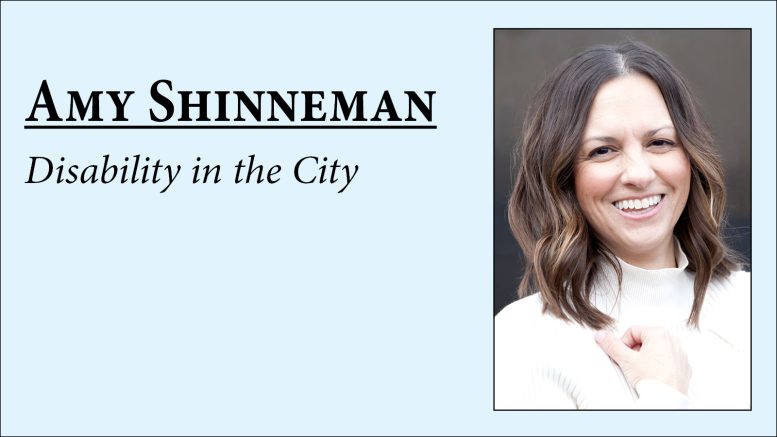Most of us have heard the saying “silence is golden,” meaning it is often better or more respectful to remain silent than to speak. The full saying is “speech is silver, silence is golden.”
While that may very well be true in some cases, when it comes to silence and having my needs met as a person with a disability, this statement is untrue. In fact, it is better to speak up and voice my needs as someone who has needs that have to be met to keep me safe or make an experience as successful as possible for me.
A longtime friend recently reminded me how I used to “mask” my disability in middle and high school, and even into college. The last thing I wanted to do was draw attention to myself at that age, especially if I felt like I was putting someone out to get a need met. Often, I chose to silently suffer because I was too shy, too afraid, or not educated enough to know that it was okay to speak up for myself and what I needed as a young, disabled girl. To be honest, it was mostly because I did not want to be any more different from my peers than I already was. Blending in was the goal then, not standing out.
My high school had an elevator which I had to use after having a surgery. I also had permission to have someone leave class with me early to allow extra time to get to class and avoid crowded hallways of students unfamiliar with dodging a wheelchair. However, when I was not recovering from a surgery, using that elevator was the last thing I wanted to do. I chose to do things the hard way and very slowly make my way up the crowded stairways. I always hated that feeling of people effortlessly climbing the stairs all around me. We had exactly seven minutes to get to our lockers and get stuff for the next class. That was sometimes a challenge depending on the distance between classes, but it is what I chose to do.
Looking back, that seems silly to me. Unless I was forced to ask for accommodations, I was going to avoid it, even if it meant my life was more difficult and internally stressful.
I did it in my work life, too. For a long time, I never told my boss that I had to crawl up my clients’ stairs if they did not have a railing at their home during my hundreds of home visits over the years in social services. I just kept doing it, each time being horribly stressed out and humiliated. It is impossible to come across as confident and capable when you are meeting your client or parents of a client when on your hands and knees, if they happened open the door up before I was able to get back up. Some were horrified, others compassionate. I did this for years and years. Why? I did not want to cause a fuss.
Even now, I often find myself staying quiet when I should be speaking up for an accommodation that I need in a certain situation. It is hard to ask for things when you do not know if you will be met with a kind attitude or a hateful one. I have gotten better at it, but sometimes I still try to avoid the interaction.
That certainly would not be my advice to a younger person asking me. I would tell them to absolutely speak up for their needs, boldly and confidently. Why? Because as human beings we should all have the same access to what society has to offer. It is absurd to think that because someone is disabled, they would not be given the same opportunities as a non-disabled person, but it is not at all uncommon. Living with a disability can be difficult without the added stress of constantly fighting for simple accommodations like access to a restaurant, theatre, airplane, restroom, tourist attraction etc.
In my role as the National Ambassador for the Muscular Dystrophy Association, publicly sharing my story helped me to grow in confidence tremendously. Each time I shared my story with an audience, I felt more empowered to voice my needs as a disabled woman.
Even though I am not perfect at speaking up for my needs, especially when I feel like I am putting someone out, or changing someone else’s experience, I am getting better at using my voice. How could I have expected my family, friends, or teachers to know what I needed when I was not saying a word? I could not. That is just part of my life’s reality. I do have to explain my needs and often follow up with a story about why.
Silence is not always golden. If you have the need to speak up for yourself, then humbly courageously do so, even if it feels like there are people who would rather you not.
Until next time …
Amy Shinneman is a former National Ambassador for the Muscular Dystrophy Association, disability blogger, wife, and mom of two boys. You can find her blog at humblycourageous.com and reach her on Instagram @ashinneman.

